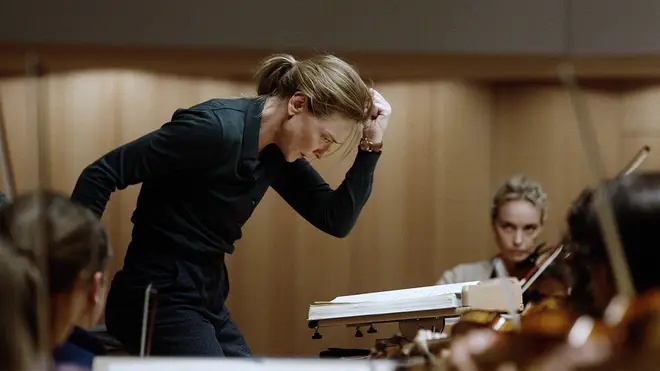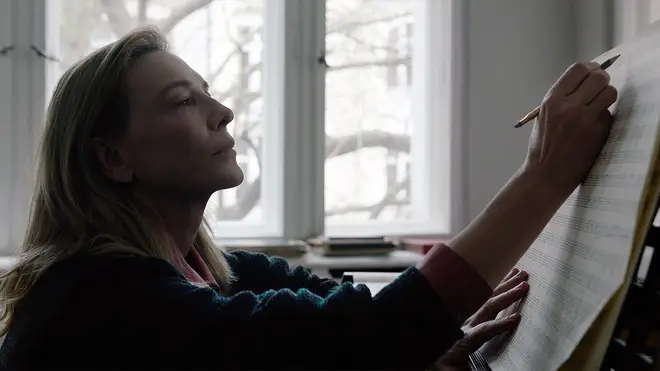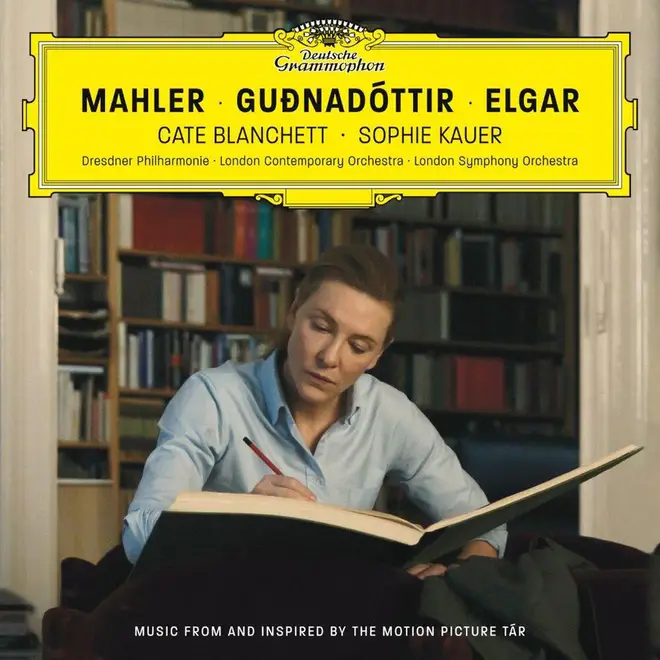Tár: who is Lydia Tár, what’s the music and how did Cate Blanchett learn to conduct?
30 September 2022, 17:57 | Updated: 11 January 2023, 10:09

Watch the trailer for TÁR
Cate Blanchett stars as the tyrannical maestro Lydia Tár, the first woman at the helm of a major German orchestra. Here’s all you need to know about ‘Tár’.
Her monumental portrayal of the fictional composer-conductor Lydia Tár has already earned Australian actor Cate Blanchett a Best Actress prize at Venice, as well as mutterings of an eighth Oscar nomination.
Tár, released in UK cinemas on 20 January 2023, centres around Lydia Tár, the first female chief conductor of a major German orchestra and “one of only 15 EGOTs [winner of an Emmy, Grammy, Oscar and Tony] in the world”.
Addressed by her colleagues as “maestro”, and widely considered one of the greatest living conductors, we meet Tár at the peak of her career. Blanchett is outstanding in this monster of a role as the globally renowned, and sometimes tyrannical, Lydia, whose control over her own professional legacy begins to slip throughout the film.
From writer-director Todd Field, and starring Noémie Merlant, Nina Hoss, Sophie Kauer, Julian Glover, Allan Corduner and Mark Strong, here is everything you need to know about the music and musical references in Tár.
Read more: The 50 greatest film scores of all time

Who is Lydia Tár?
“Lydia Tár is many things,” the New Yorker journalist announces at the book launch which opens the movie, a line cut for dramatic effect into the trailer (watch above).
In case you were wondering, Lydia Tár is not a real person, but a fictional conductor-composer, whose success on the podium and in the recording studio has earned her a rare, celebrity status.
At the opening of the film, Tár is preparing for a book launch and on the cusp of a major live recording of Mahler’s Symphony No.5 with her Berlin orchestra, which she has led for the last decade, for Deutsche Grammophon. References to the real-life world of classical music permeate the film, from the yellow label to Marin Alsop and Leonard Bernstein.
Tár gradually orchestrates the undoing of her personal and professional life, as her relationships with her partner, who is first violinist in the orchestra, her colleagues, protégés and former students, become her impending destruction. Tár threatens a girl at her adopted daughter’s school that she hears is bullying her, and later rewrites an entire concert programme for a young cellist in the orchestra, the latest object of the maestro’s fascination.

Did Cate Blanchett learn to conduct and play piano for ‘Tár’?
“As a conductor, Tár began her career with the Cleveland Orchestra, Chicago Symphony Orchestra, the Boston Symphony Orchestra, until she at least arrived here at our own New York Philharmonic,” the journalist continues in his introduction for Tár.
The character adds that in 2013, Berlin elected her as principal conductor, and she has also written music for stage and screen. It was a given then, that Blanchett would need to give the appearance of being a highly experienced and skilled conductor.
As a child, Blanchett took piano and ballet lessons, and later studied movement at drama school. Blanchett has since spoken in an interview on Good Morning America about the “joy” of learning to play piano, conduct and speak German for the role of Lydia. Fore the film Blanchett learned piano with Emese Virág, a teacher at the Budapest Liszt Ferenc Academy of Music, and was coached in conducting by American conductor, Natalie Murray Beale.
“With every pregnancy I said I would go back and pick up piano again, because I learned as a girl,” she said. But the hardest moment of the training, she said, was “stepping in front of the the Dresden Philharmonic” and conducting the German orchestra for real.
“It was a life-changing moment,” she said, adding that she was told beforehand, “You won’t be prepared for the sound of those big orchestral works.”
In a director’s statement about Blanchett’s performance, Field called the actor “a master supreme”. He said, “Even so, while we were making the picture, the superhuman-skill and verisimilitude of Cate was something truly astounding to behold. She raised all boats. The privilege of collaborating with an artist of this caliber is something impossible to adequately describe.”

What’s the music in ‘Tár’, and who performs it?
The original score is composed by Hildur Guðnadóttir, the Oscar-winning Icelandic composer behind the music for Joker (2020), and performed by the London Contemporary Orchestra under conductor Robert Ames. Throughout the film, the music serves to amplify the tension and build towards Tár’s ultimate comeuppance.
Being a film set in the world of classical music, we also hear from many of the heavyweights, including Elgar and Bach – the Cello Concerto, and Well-Tempered Clavier.
On screen, the Dresden Philharmonic play Tár’s ‘Berlin’ orchestra, and British cellist Sophie Kauer makes her acting debut as fictional cellist Olga Metkina, who recorded the Elgar concerto in the film with the London Symphony Orchestra.
On 21 October, Guðnadóttir is releasing her score to Tár on the Deutsche Grammophon label. The album features music both from and inspired by the film, as well as a rehearsal of Mahler’s Symphony No.5 conducted by Cate Blanchett, who appears on the album artwork.























